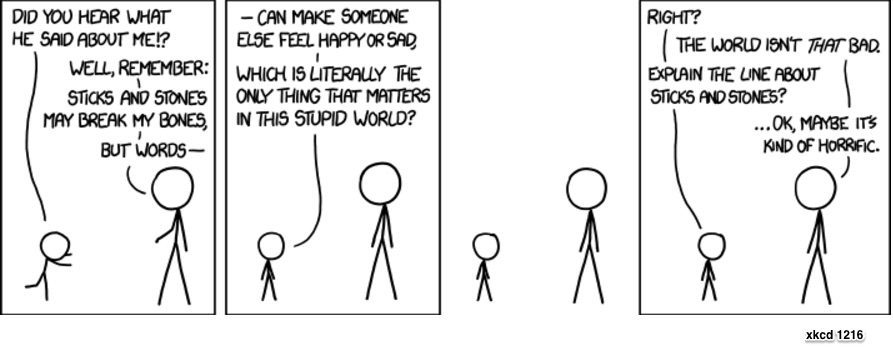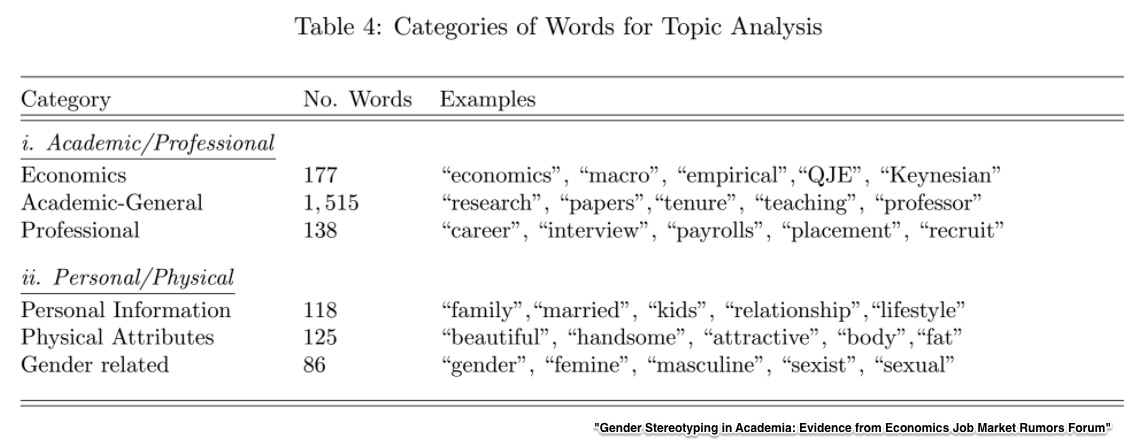
When the Power of the Market Affects Commodity Prices
August 22, 2017
Throwback Thursday: When Wall Street Trading Was Slower
August 24, 2017 A behavioral economist would agree. Words can be harmful.
A behavioral economist would agree. Words can be harmful.
Word Barriers in Job References
When people say a woman is authentic and warm in a job reference, they could be engaging in benevolent sexism. Well meaning (perhaps), they are actually undermining a fellow colleague. They are citing traits that demean a woman’s leadership skills and her intelligence.
A recent Harvard Business Review article further explained that professional women and men tend to be described differently. In job references, the words about women are “communal.” They allude to how friendly and helpful they are. Meanwhile, men are more frequently characterized as determined and intelligent. You can see who might appear to have the leadership potential.
Word Barriers in the Economics Job Market Rumor Forum
A recent paper making the rounds in the economics community offered further evidence that words harm women. The researcher’s goal was to quantify word use on an anonymous economics jobs forum site (econjobrumors.com). Her conclusions resembled the HBR article.
Using more than one million posts, she quantified the use of “male” and “female” words. For posts that referred to women, there was three times the chance of personal and physical references. The word attractive made it 26% more likely that the reference was to a female. However, the word motivated reduced that probability by 17.1%. Correspondingly, when forum contributors referred to women, there were 43% fewer academic and professional terms while 192% more of the words were personal or physical. Even more disturbingly, many of the words about women were sexually inappropriate.
Below are some examples of professional and physical words:
Our Bottom Line: Confirmation Bias
A behavioral economist could say that in job references and the jobs forum/message board, people were engaging in confirmation bias. Because they thought of women in less professional terms, they expected them to be described that way. Consequently they were reinforcing and perpetuating social norms that constrained women’s careers.
So yes, more than sticks and stones, words are harming female professionals.
My sources and more: Looking for examples, I discovered that discussions of gender language barriers occupy considerable territory. This Freakonomics podcast provides some history while HBR looks at the jobs market. Then, the NY Times and this paper convey an academic perspective. All were jarring.
After publication, this post was slightly edited.
Today’s wonderful featured imaged was from clarioncontentmedia.
![econlifelogotrademarkedwebsitelogo[1]](/wp-content/uploads/2024/05/econlifelogotrademarkedwebsitelogo1.png#100878)





